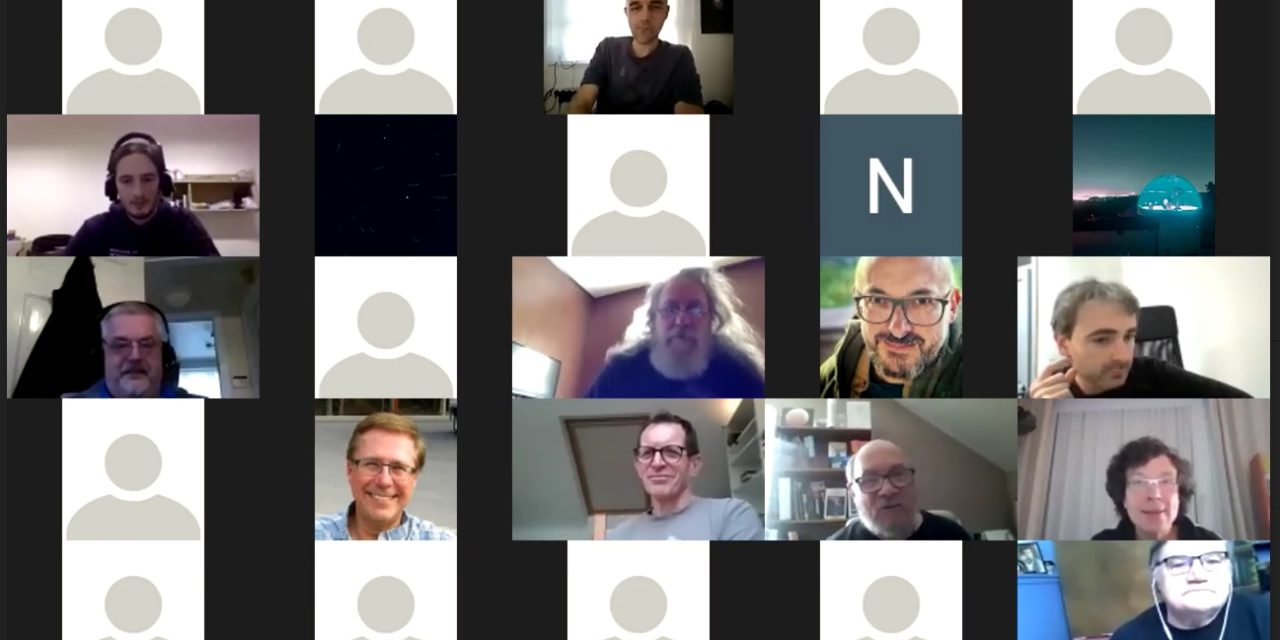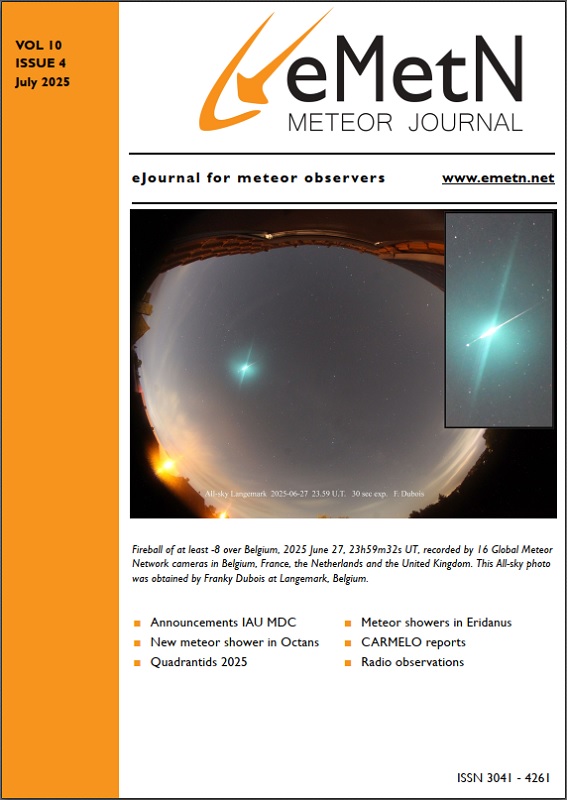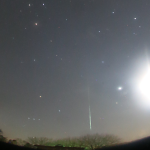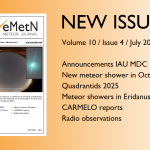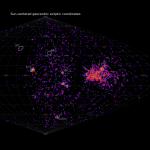On 20 February 2021 Global Meteor Network had its first meeting. More than 50 participants attended the meeting online. The meeting took about 6 hours including some breaks. Apart from a workshop and Q&A session, there were several presentations. You can now watch the video of this meeting: https://youtu.be/QXBTLPnPDWs. You can skip through the program using the timing on the sliding bar in YouTube. As far as available the presentations can be consulted online too.
If you are interested in an up-to-date presentation of the origin and evolution of our solar system, and what our meteor observations can actually learn about this, the main talk by Denis Vida ( A brief history of the Solar System and the case for the Global Meteor Network) is much recommended.
Interested to join this fascinating project? On the website https://globalmeteornetwork.org/ you will find all the information you need, about the project, how to purchase RMS cameras plug-and-play or how to build your own camera. Global Meteor Network is the fastest growing camera network but still needs more volunteers to obtain worldwide coverage on both northern and southern hemisphere. GMN has a very active community discussing problems and solutions: https://groups.io/g/globalmeteornetwork. If you need some help, you will easily get tips and tricks from other participants.
Schedule GMN Meeting 20 February 2021
| CET | EST | MST | Topic |
| 16:45 | 10:45 AM | 08:45 AM | Optional: Presenters testing their slides with Zoom |
| 17:00 | 11:00 AM | 09:00 AM | Meeting begins – Introductions |
| 17:10 | 11:10 AM | 09:10 AM | Denis Vida – A brief history of the Solar System and the case for the Global Meteor Network. |
| 18:10 | 12:10 PM | 10:10 AM | Break |
| 18:15 | 12:15 PM | 10:15 AM | Workshop |
| 19:00 | 01:00 PM | 11:00 AM | Dinner/lunch/brunch break |
| 19:15 | 01:15 PM | 11:15 AM | Nick Moskovitz – Development of the Lowell Observatory GMN/CAMS Network |
| 19:27 | 01:27 PM | 11:27 AM | Pete Eschman – The New Mexico Meteor Array |
| 19:39 | 01:39 PM | 11:39 AM | Dmitrii Rychkov – Experience of deployment of a meteor network in the south of Russia |
| 19:51 | 01:51 PM | 11:51 AM | Tammo Jan Dijkema – A tour of the meteor map |
| 20:03 | 02:03 PM | 12:03 PM | Damir Šegon – The 16mm Lens Equipped RMS – Why? |
| 20:15 | 02:15 PM | 12:15 PM | Break |
| 20:25 | 02:25 PM | 12:25 PM | Pete Eschman – The New Mexico Meteor Array: Lessons Learned |
| 20:37 | 02:37 PM | 12:37 PM | Eugene Mroz – No Meteor Unobserved: Camera Network Optimization |
| 20:49 | 02:49 PM | 12:49 PM | Pete Gural – Applying Deep Learning to RMS Meteor Classification – First Look |
| 21:01 | 03:01 PM | 01:01 PM | Paul Roggemans – Orbit similarity criteria and meteor shower identification |
| 21:13 | 03:13 PM | 01:13 PM | Lovro Pavletić – First GMN analysis of the the new Epsilon Ursae minorid meteor shower observed in 2019 |
| 21:25 | 03:25 PM | 01:25 PM | Damir Šegon – Some experiences in calibrating casual recordings of meteorite-dropping fireballs |
| 21:37 | 03:37 PM | 01:37 PM | Hector Socas-Navarro – Current status and future plans of RMS camera(s) on Tenerife |
| 21:49 | 03:49 PM | 01:49 PM | Break |
| 22:00 | 04:00 PM | 02:00 PM | Q&A |

